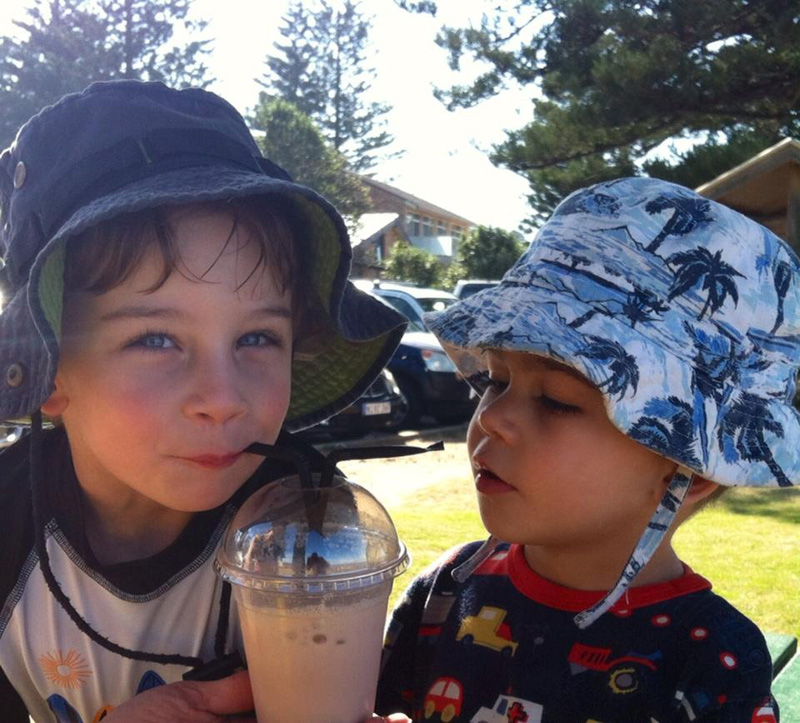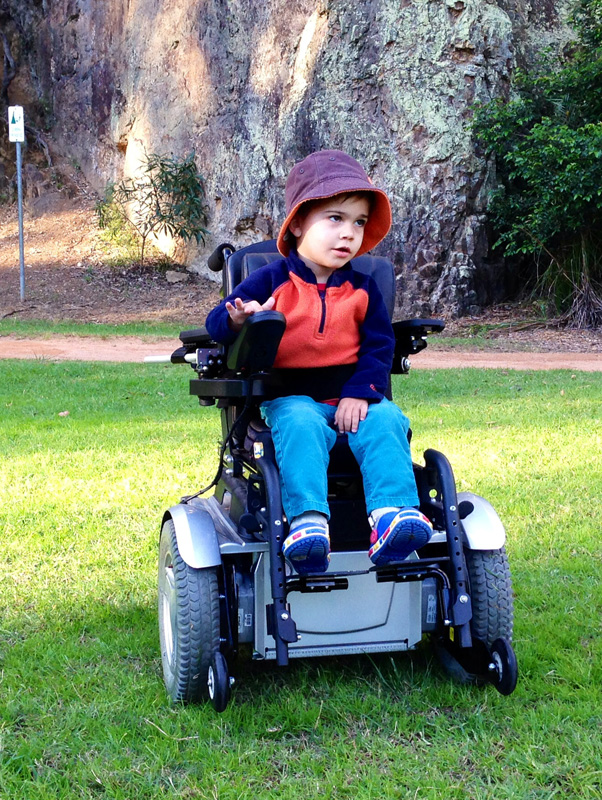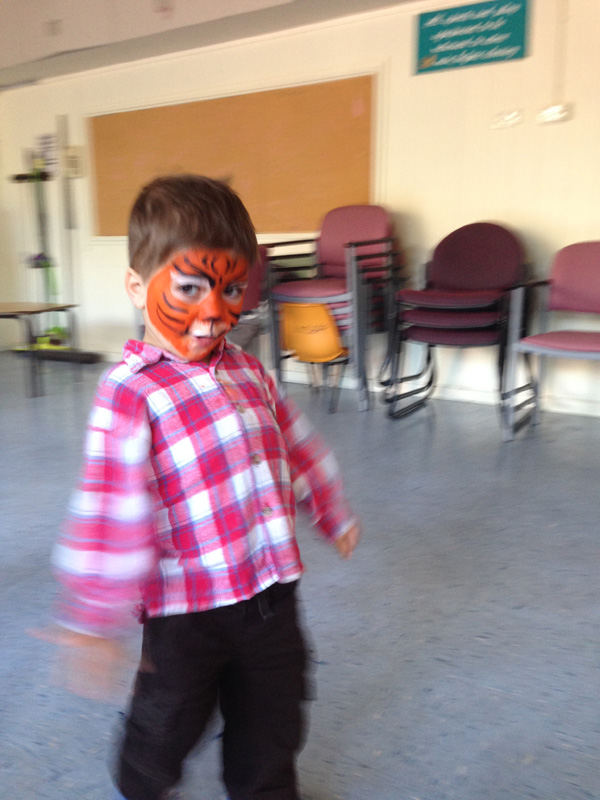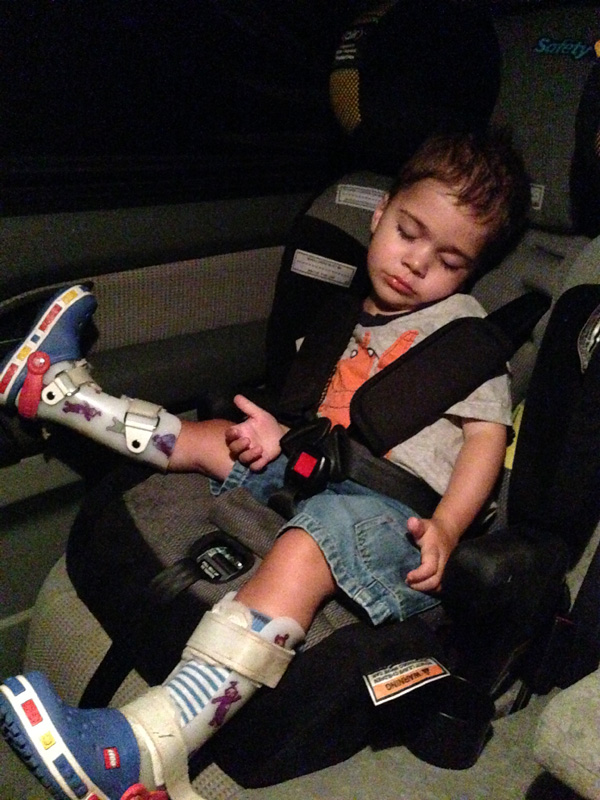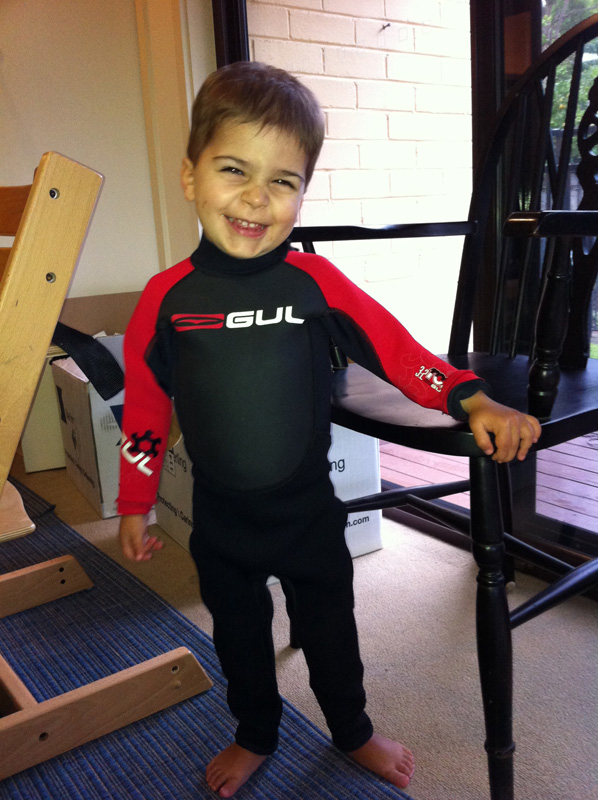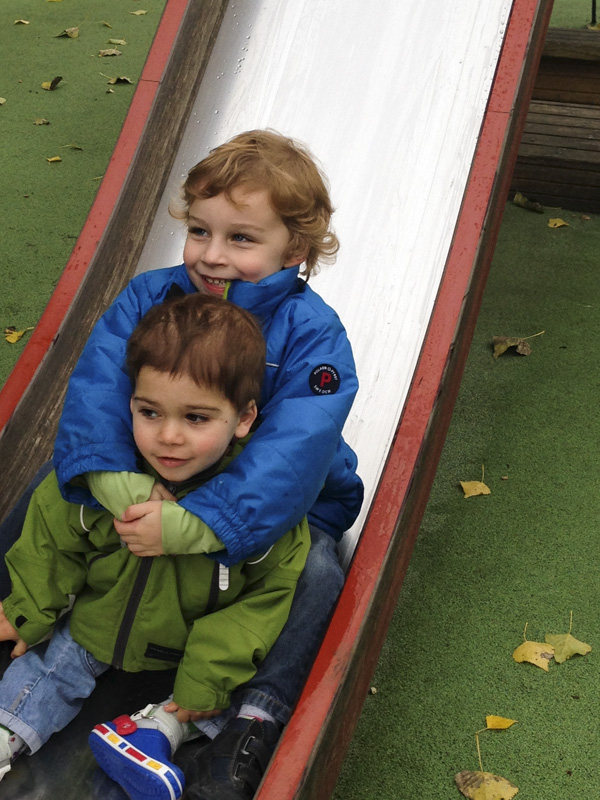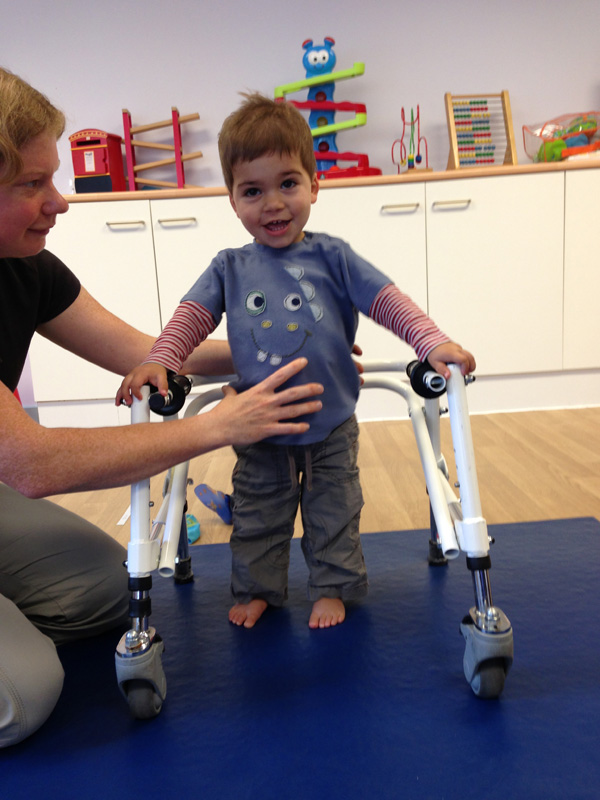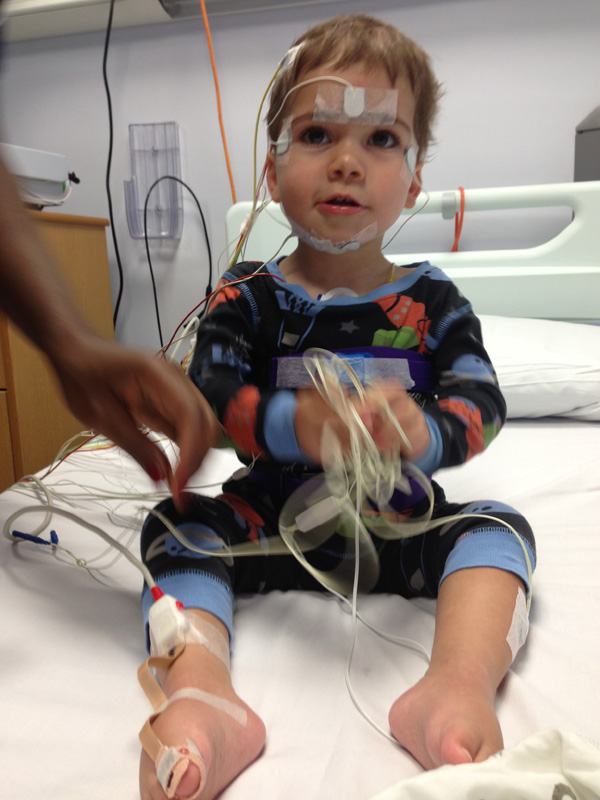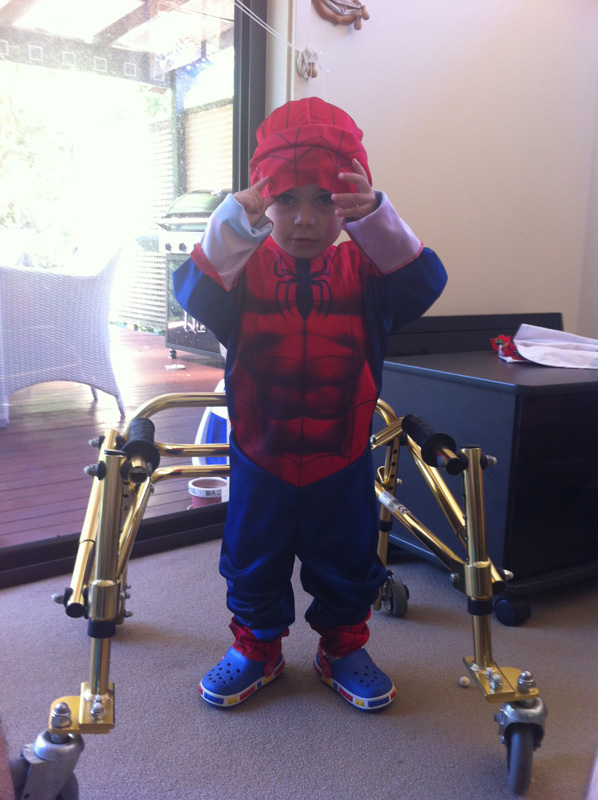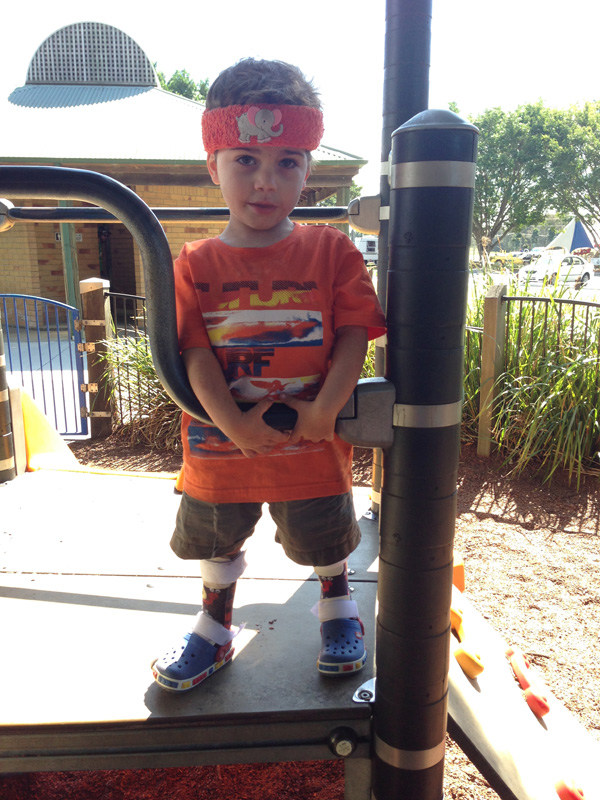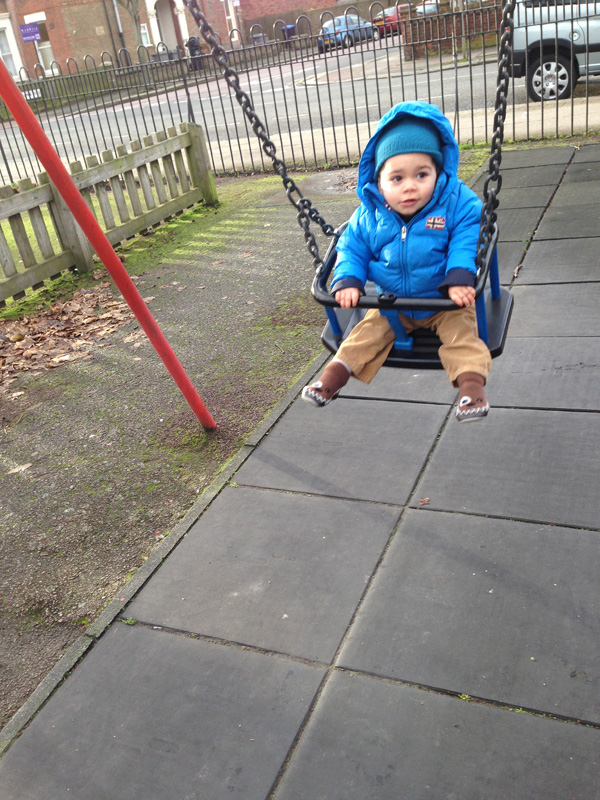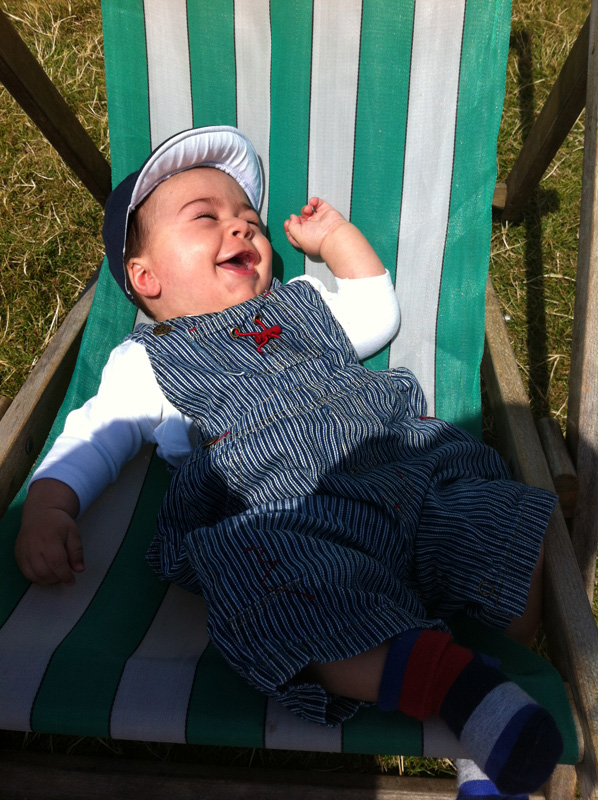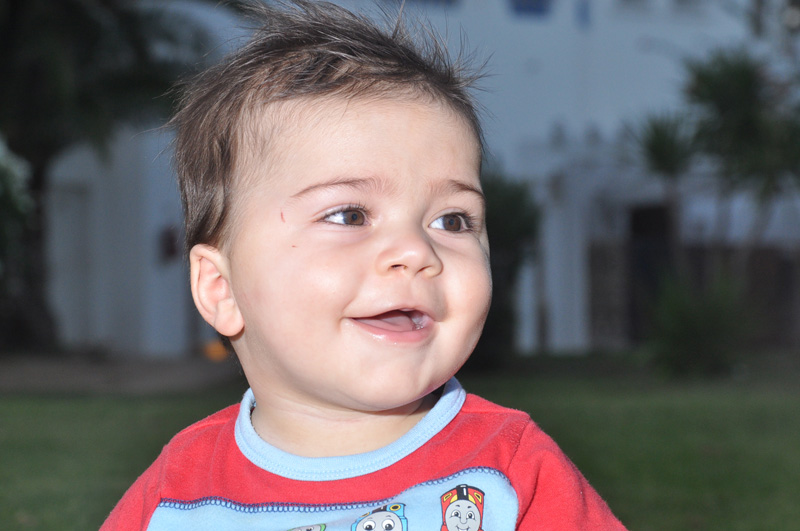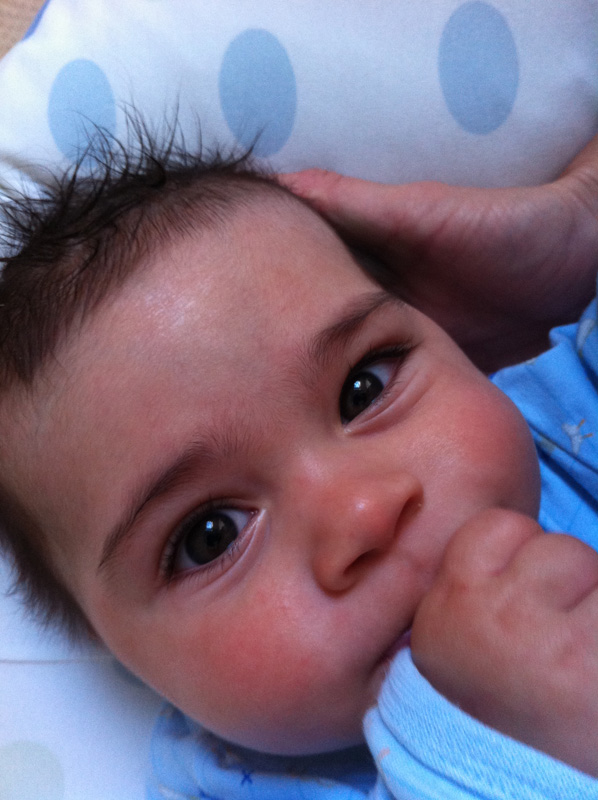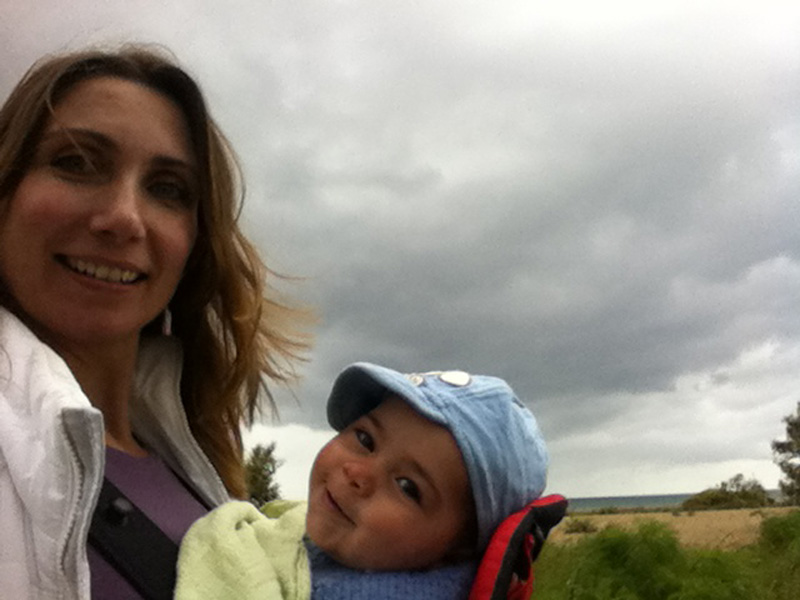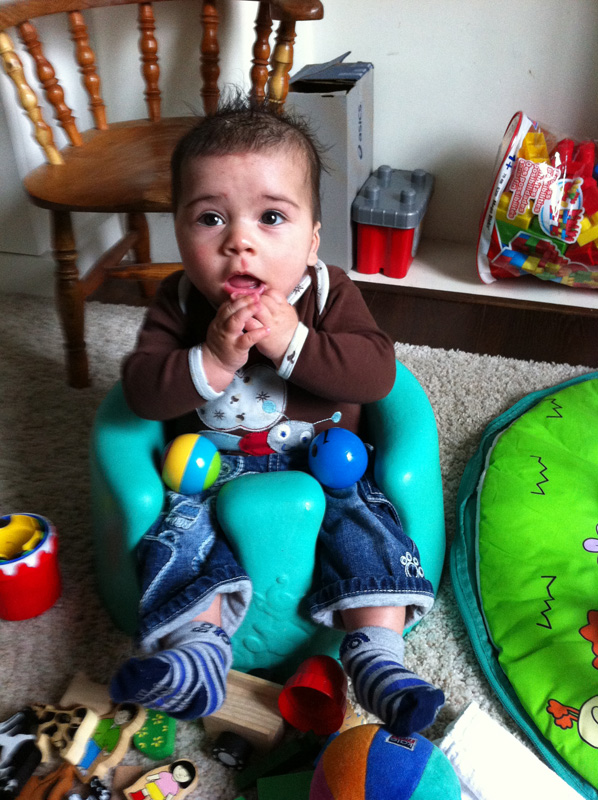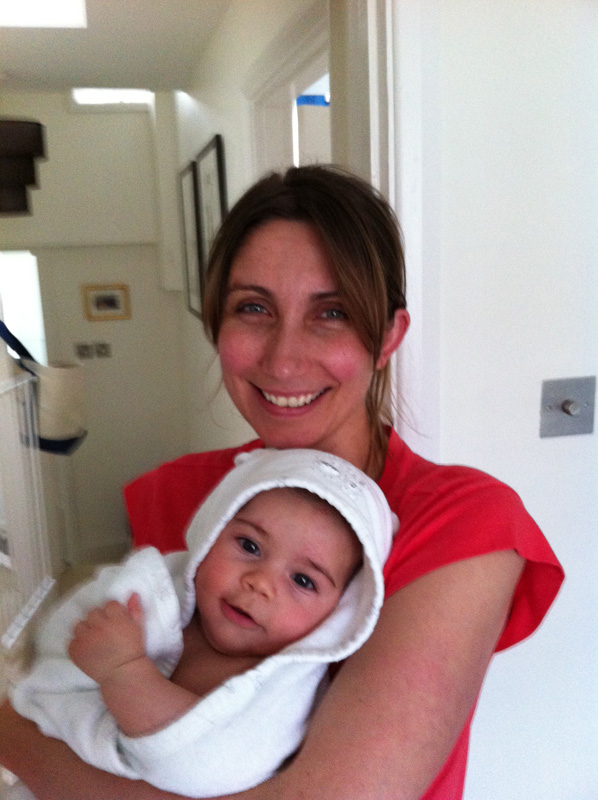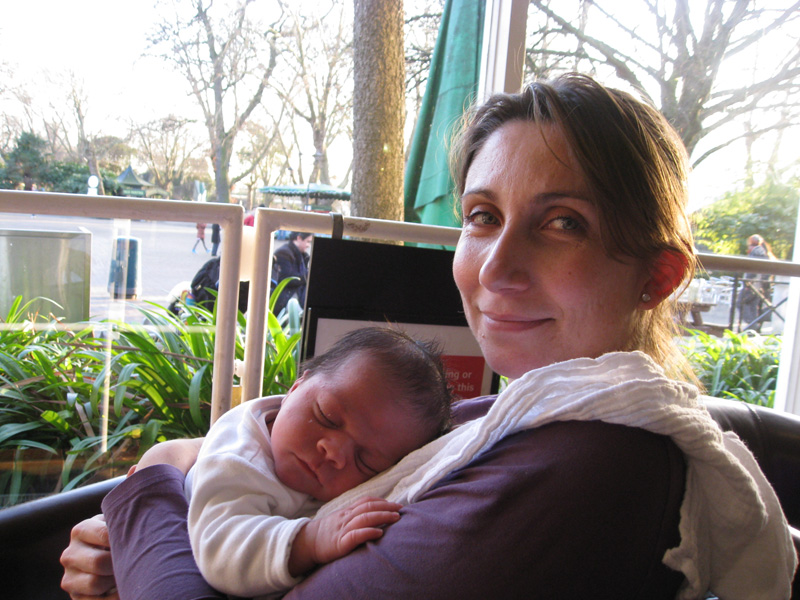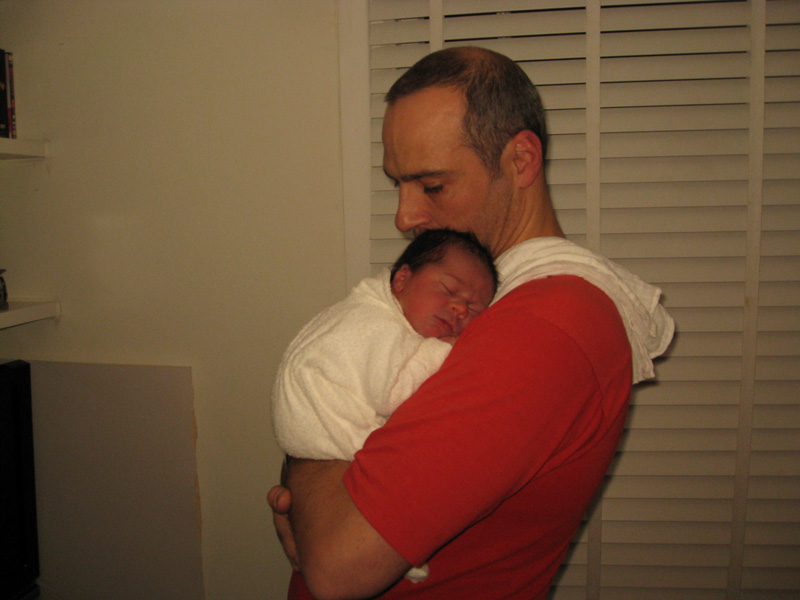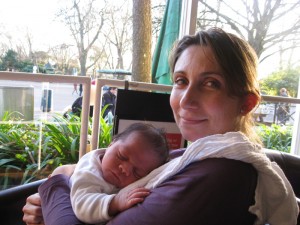 Fletcher was born in his West London home in the UK just a few days after Christmas in 2011. The plan was to have our second baby in St. Mary’s hospital in Paddington, just as we had with his older brother Harrison. However, Fletcher was in a rush to see us and was delivered quite dramatically in our bedroom after only a couple of hours of labour. He was of course, perfect in every way, was at a healthy average weight and very alert.
Fletcher was born in his West London home in the UK just a few days after Christmas in 2011. The plan was to have our second baby in St. Mary’s hospital in Paddington, just as we had with his older brother Harrison. However, Fletcher was in a rush to see us and was delivered quite dramatically in our bedroom after only a couple of hours of labour. He was of course, perfect in every way, was at a healthy average weight and very alert.
With hindsight however, he didn’t move as much as his brother had during pregnancy and certainly wasn’t as active over the first 6 months of his life.
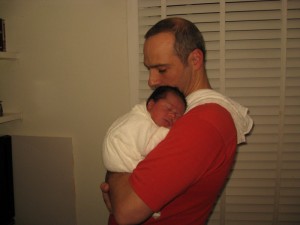 Fletcher hit many of the normal milestones you would expect. He was interested in his environment, playing with toys, as well as able to sit and eat. In fact, Fletcher had a good strong grip which helps when your older brother wants his toy back. We had no idea anything was wrong and enjoyed a normal first 12 months creating beautiful memories, having many smiles, cuddles and giggles. Special times.
Fletcher hit many of the normal milestones you would expect. He was interested in his environment, playing with toys, as well as able to sit and eat. In fact, Fletcher had a good strong grip which helps when your older brother wants his toy back. We had no idea anything was wrong and enjoyed a normal first 12 months creating beautiful memories, having many smiles, cuddles and giggles. Special times.
The first sign that something was not quite right was when Fletcher could not roll around on the floor and really resisted playing whilst on his tummy. At 12 months, Fletcher was unable to travel on his own across the floor, showed no interest in standing and was unable to bring himself up to a sitting position. Some children do take a while to learn these new skills and all the literature says not to rush babies and to let them figure it out themselves. But as time went by, Fletcher could not crawl or roll and although we could put him into a sitting position he was very unstable and prone to falling backwards. Also, Fletcher’s feet often pointed straight out like a ballerina on point.
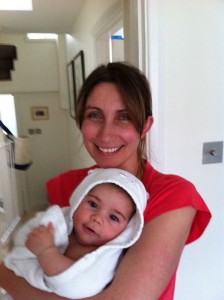 Shortly after Fletcher’s first birthday, we decided to have him checked over by a paediatrician. Luckily for us, Fletcher’s god mother in the UK knew a very good one in West London. Fletcher had a thorough examination which concluded with a referral to a specialist neuromuscular paediatrician – which was the point where we realised Fletcher may have some developmental problems with his gross motor movements. This is when the testing really began and Fletcher started to find out what it was like to be poked and prodded. We realised that he had very tight ankles, couldn’t flex his feet and that his reflexes were absent. Fletcher was not able to talk yet but he certainly got his point across, as he would often try to hide the reflex hammer so he didn’t have to get hit on the knee with it again!
Shortly after Fletcher’s first birthday, we decided to have him checked over by a paediatrician. Luckily for us, Fletcher’s god mother in the UK knew a very good one in West London. Fletcher had a thorough examination which concluded with a referral to a specialist neuromuscular paediatrician – which was the point where we realised Fletcher may have some developmental problems with his gross motor movements. This is when the testing really began and Fletcher started to find out what it was like to be poked and prodded. We realised that he had very tight ankles, couldn’t flex his feet and that his reflexes were absent. Fletcher was not able to talk yet but he certainly got his point across, as he would often try to hide the reflex hammer so he didn’t have to get hit on the knee with it again!
Fletcher was referred to a neuro-paediatrician who quickly established that he was a bright, very social and articulate little boy who had generalised muscle weakness. He was sent off for blood and urine tests, which showed a raised creatinine kinase (CK) level – which is a marker of muscle breakdown. Fletcher was then referred to Great Ormond Street Hospital for more tests including a nerve conduction study. This involved small electric shocks being administered in his feet, hands and under his chin to measure the nerve response; he was always very brave and rarely complained. Fletcher managed to capture the hearts of the medical staff where ever he went. He certainly coped with all of the testing much better than his parents, who were worried beyond belief at what these tests might tell us!
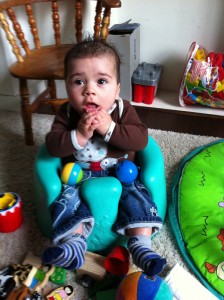 Straight away work was underway on Fletcher’s feet. We were tasked with some intense physiotherapy so that Fletcher could put his feet in the natural position before being given orthotics (ankle splints) to help strengthen the ankle and keep it in a flexed position. This was quite painful for Fletcher and the orthotics were awkward but this was essential. We were told Fletcher would wear orthotics for the rest of his life.
Straight away work was underway on Fletcher’s feet. We were tasked with some intense physiotherapy so that Fletcher could put his feet in the natural position before being given orthotics (ankle splints) to help strengthen the ankle and keep it in a flexed position. This was quite painful for Fletcher and the orthotics were awkward but this was essential. We were told Fletcher would wear orthotics for the rest of his life.
Fletcher was also referred a children’s physiotherapy team in West London. The team was lead by someone who would become one of the most important and influential people Fletcher would meet. A child learns by exploring, a simple activity that we all take for granted as we adventure around our world at ease. However, Fletcher could not do this. By this time he could only get around by shuffling about on his bum. This was only possible if he was sat on a wooden or tiled floor and frequently he would topple over unable to sit again without help. The Physio team in West London put Fletcher through mini boot camp every week; working him hard and giving mum and dad a number of exercises to do every day in between weekly sessions. This hard work paid off as only a few months in, Fletcher stood by himself.
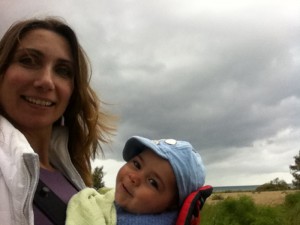 Results of the tests showed that Fletcher had muscular dystrophy but did not show which type. The puzzle for the team at Great Ormond Street Hospital was that at just over one year old, Fletcher was presenting features of muscular dystrophy very young – and this is unusual. The lead consultant decided to send Fletchers blood for genetic tests looking specifically for a fault in the LMNA gene. If positive, this would give Fletcher a conclusive diagnosis. After 6-8 weeks of waiting, worrying and hoping we were called and asked to come to the hospital without Fletcher. The devastating blow was given and the team told us Fletcher, now 18 months, had a very rare condition known as LMNA related congenital muscular dystrophy. We were told straight away by the team what this meant for Fletcher and told to prepare for a difficult future. Only a handful of patients with this disease were known to the team in London and no child had ever survived past the age of 15 years as cardiac and pulmonary complications take hold. There is currently no known treatment or cure for this condition.
Results of the tests showed that Fletcher had muscular dystrophy but did not show which type. The puzzle for the team at Great Ormond Street Hospital was that at just over one year old, Fletcher was presenting features of muscular dystrophy very young – and this is unusual. The lead consultant decided to send Fletchers blood for genetic tests looking specifically for a fault in the LMNA gene. If positive, this would give Fletcher a conclusive diagnosis. After 6-8 weeks of waiting, worrying and hoping we were called and asked to come to the hospital without Fletcher. The devastating blow was given and the team told us Fletcher, now 18 months, had a very rare condition known as LMNA related congenital muscular dystrophy. We were told straight away by the team what this meant for Fletcher and told to prepare for a difficult future. Only a handful of patients with this disease were known to the team in London and no child had ever survived past the age of 15 years as cardiac and pulmonary complications take hold. There is currently no known treatment or cure for this condition.
Our hearts sunk as we learned of the daily challenges our little man would face. We staggered towards our family and friends who helped us grieve this diagnosis and then re-focus on celebrating our beautiful little boy and making each and every day count.
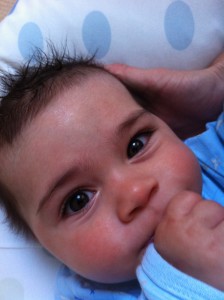 By sheer determination from Fletcher and the hard work of his Physiotherapist, Fletcher learnt to not only stand, but eventually take his first steps using a walking frame and boned leg gaiters, something we were told may never happen. This gave Fletcher immense satisfaction exclaiming ‘I did it, I did it!’ With this new found freedom came a new concern, Fletcher is unable to brace himself when he falls. Initially he would fall a lot, sometimes onto his bottom but often face first onto his head. With time and practice, these falls have decreased in frequency but he still sustains hard knocks to his head quite often.
By sheer determination from Fletcher and the hard work of his Physiotherapist, Fletcher learnt to not only stand, but eventually take his first steps using a walking frame and boned leg gaiters, something we were told may never happen. This gave Fletcher immense satisfaction exclaiming ‘I did it, I did it!’ With this new found freedom came a new concern, Fletcher is unable to brace himself when he falls. Initially he would fall a lot, sometimes onto his bottom but often face first onto his head. With time and practice, these falls have decreased in frequency but he still sustains hard knocks to his head quite often.
Fletcher loves playing lego, dinosaurs, swimming, playing with his friends, playing with cars and train sets, drawing and painting. He loves ‘cooking’ us dinner on his toy kitchen, playing on playground equipment and has recently learnt to kick a football! He is a very chatty and is very social with many friends. He is also quite cheeky some times, very funny and throws your typical tantrums. He also firmly believes that the Octonauts should win an Oscar next year.
Fletcher adores his big brother (even though there are plenty of little fights) and is loved by his family and all those who are fortunate enough to meet him. He is wise beyond his years with many lessons to teach us. Fletcher will attend pre-school next year, which he is very excited about!
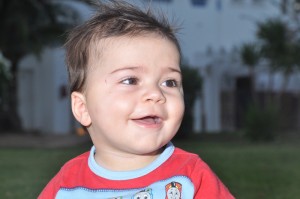 We now live in Australia in Sydney’s North Shore and spend plenty of time at the beach! Fletcher’s Pa has modified a little wagon so the children can safely pull him around and we will modify a boogie board so that Fletcher can go ‘skimming’ along the water. Nana has made him cute padded headbands to help soften any bumps to the head. Fletcher can walk for short distances as long as the ground is flat and keenly explores his world. For him to be able to ‘run’ after his friends or walk over unsteady ground or over long distances, he will need a small power wheelchair. We are currently waiting for funding to come through for this and are very much looking forward to the freedom this will offer him.
We now live in Australia in Sydney’s North Shore and spend plenty of time at the beach! Fletcher’s Pa has modified a little wagon so the children can safely pull him around and we will modify a boogie board so that Fletcher can go ‘skimming’ along the water. Nana has made him cute padded headbands to help soften any bumps to the head. Fletcher can walk for short distances as long as the ground is flat and keenly explores his world. For him to be able to ‘run’ after his friends or walk over unsteady ground or over long distances, he will need a small power wheelchair. We are currently waiting for funding to come through for this and are very much looking forward to the freedom this will offer him.
Fletcher will be three just after Christmas and is now under the care of the Westmead Children’s Hospital neuromuscular team. Daily physiotherapy is a part of Fletcher’s life. He still can’t sit up from lying down or stand from sitting on the floor, but Fletcher is very determined and works on this every day. Fletcher gets fatigued quickly and even eating and drinking becomes difficult. He often needs someone to hold his cup and feed him. He still has a good sleep in the middle of the day as all of this walking around tires him out!
But even with all this, Fletcher is an amazing little boy who brightens the day of everyone he meets and is loved by so many people.
You can make a real difference to Fletcher’s life by helping to find a drug that will protect his heart. Don’t hesitate, hit Donate now and also spread the word about this special campaign to everyone. Together we can make a difference!


